2015 China Tax Law Forum and the 4th China Tax Lawyers and Tax Agents Forum
On December 27, 2015, the "2015 China Tax Law Forum and the 4th China Tax Lawyers and Tax Accountants Forum" was held in Beijing Friendship Hotel, with the theme of "Modern State Governance and Innovation of Tax-Related Professional Services". The forum was co-sponsored by All China Lawyers' Association and China Association of Registered Taxation Technicians, and co-organized by All China Lawyers' Association Finance and Taxation Law Committee, Finance and Taxation Law Research Center of China University of Political Science and Law, Hwuason Law Firm, Huatax Taxation Law Firm, and Deloitte Touche Tohmatsu Shanghai Taxation Law Firm. A total of more than 500 people, including leaders, experts, professionals and news media friends from the National People's Congress, the Ministry of Finance, the State Administration of Taxation, industry associations, institutions of higher learning, law firms, tax firms, enterprises and other departments and units, participated in the forum.

Picture: Opening Ceremony of the Forum
At 9:00 a.m. on December 27, the forum officially started with Dr. Liu Tianyong, Director of Hwuason Law Firm and Deputy Director and Secretary General of the Professional Committee on Finance and Taxation Law of the All-China Lawyers' Association, as the host of the opening ceremony. Mr. He Yong, Secretary General of All China Lawyers Association, Mr. Li Linjun, Vice President and Secretary General of China Association of Registered Taxation Technicians, Mr. Gao Peiyong, Member of Chinese Academy of Social Sciences and President of Institute of Finance and Economics Strategy, Mr. Liu Jianwen, President of China Society of Fiscal Law, Mr. Shi Zhengwen, Director of Center for Fiscal and Taxation Law of China University of Political Science and Law, and Mr. Gao Zicheng, President of Beijing Lawyers Association, attended the opening ceremony and gave speeches one after another.
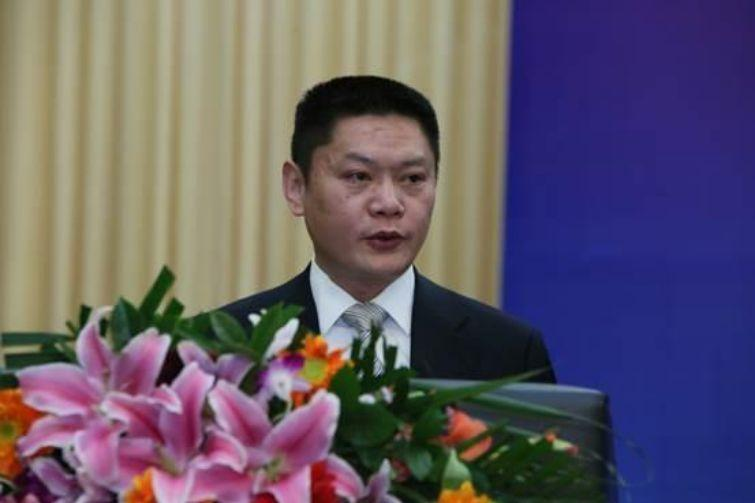
Figure: Speech by Mr. He Yong
Secretary General He Yong fully affirmed the positive significance of the forum in his speech. He believed that the organization of this forum fits the process of the reform of the national fiscal and taxation system and adapts to the unprecedentedly active tax law service market. He pointed out that over the past thirty years since the reform and opening up, China's lawyers' industry has made great development, from seventy-odd legal consultant offices to 23,000 law firms nowadays, and scaling, internationalization, and specialization have become the general trend of the development of the lawyers' industry. In the development of specialization, tax lawyers represented by Hwuason Law Firm have emerged as a new army in the process of specialization of lawyers' services, ushering in unprecedented development opportunities. With reference to the experience of the international legal market and based on the reform of the fiscal and taxation system and the urgent needs of economic development, the National Lawyers Association set up the Specialized Committee on Fiscal and Tax Law in 2012 to promote the development of China's tax lawyers industry. Although China's social background and the construction of the tax rule of law have led to a relatively late start for the tax lawyers' community in China, the market potential has provided a very large space for the development of tax lawyers. Especially, in the period when China's tax reform and tax legislation will usher in a period of rapid development and in-depth adjustment, tax lawyers, as professionals proficient in relevant laws as well as tax business, can provide advice and suggestions for the construction of the rule of law on taxation in China, and positively influence the level of China's future tax legislation, law enforcement and justice.
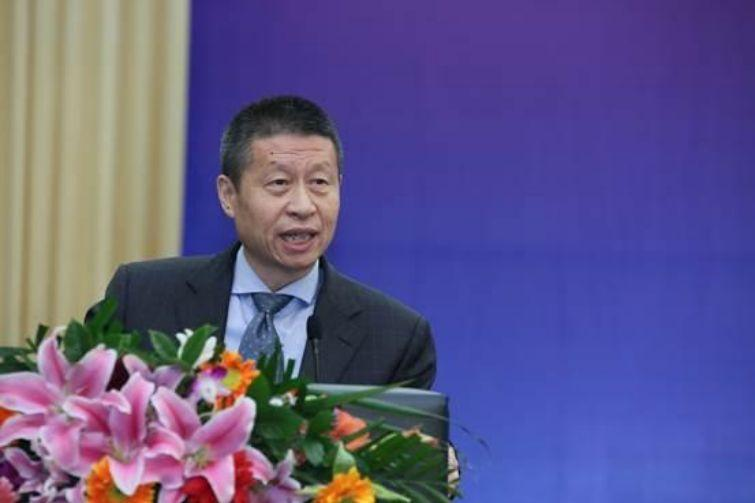
Picture: Speech by Vice President Li Linjun
In his speech, Vice President Li Linjun firstly expressed congratulations on the success of this year's Tax Law Forum on behalf of the China Association of Registered Taxation Technicians, one of the organizers. He believed that the tax accountant profession is facing reform, innovation, transformation and upgrading. A series of reform initiatives, such as the determination of the principle of tax law, the advancement of tax reform, the revision of the Tax Administration Law, and the introduction of the Program for Deepening the Reform of the State Tax and Local Taxation Levy Management System, have brought great space for tax-related professional services. In particular, recently, the General Office of the CPC Central Committee and the General Office of the State Council issued the Program for Deepening the Reform of the State Tax and Local Tax Levy and Administration System, which specifies "to regulate and give full play to the positive roles of tax-related professional service social organizations in optimizing tax payment services and improving the efficiency of levy and administration." This is an affirmation of the socialized role of tax-related professional service organizations and an important guarantee for the healthy and sound development of the industry. In his speech, President Li also particularly emphasized the significance of cooperation, believing that tax-related professional services are market behaviors, and although there is competition, what is more important is win-win cooperation. The fact that the two major trade associations of tax accountants and lawyers have co-organized this forum for three consecutive sessions is in itself an important practice of the concept of win-win cooperation. In the future, there is much room for cooperation among tax accountants, lawyers and other industries.
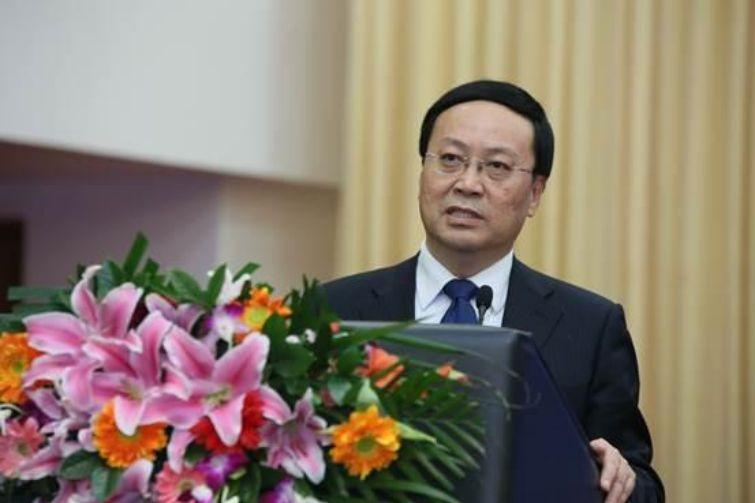
Figure: President Gao Peiyong's Speech
In his speech, President Gao Peiyong believes that although today's China and the world are becoming more and more complicated, we can still sort out an important clue from the complicated pattern of economic and social development that can have the significance of mobilizing the whole body, and that is taxation. Modern national governance is to deal with the relationship between the government and the market, between the state and society, and between the central and local governments, and one of the core clues among these three major relationships is in fact taxation. If we grasp the tax, we grasp a core clue in dealing with these three major relationships at the level of national governance. That is to say, national governance is a comprehensive concept that includes economic, political, cultural, social and ecological civilization, etc., but by grasping taxation, we have grasped a core clue to deal with or simultaneously deal with the relationship between economic, political, cultural, social and ecological civilization. Moreover, the more national governance tends to be modernized, the more the importance of taxation will be highlighted, and the convening of the 2015 China Tax Law Forum is of great significance as it is held at the intersection of the Twelfth Five-Year Plan and Thirteenth Five-Year Plan.
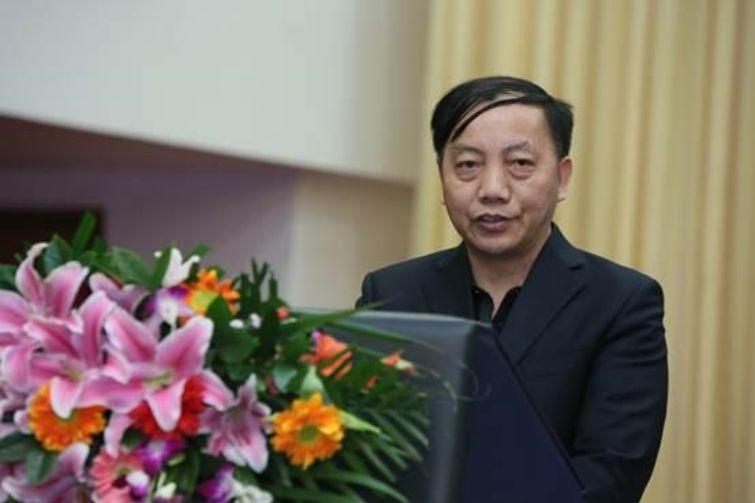
Figure: Speech by President Liu Jianwen
President Liu Jianwen pointed out in his speech that in terms of coordinating the complicated relationship between various subjects of interest, enhancing the stability and predictability of fiscal and taxation decisions, and expanding and establishing a modern fiscal and taxation system, fiscal and taxation reforms and the rule of law, especially the rule of law, are of particular importance to the development of society. Specifically, the first is to help coordinate the complicated relationship between the main bodies of interest, so that the fiscal and taxation reform can build up the greatest consensus, and guarantee the scientific nature of decision-making and the smooth implementation of the decision-making. Secondly, the rule of law in finance and taxation helps to enhance the stability and predictability of fiscal and taxation decision-making, so that market players can compete fairly and innovate independently under unified rules, and public authorities can do what they want and not do what they don't want in the exercise of their rights. Thirdly, it is conducive to expanding and establishing the goal of the fiscal and taxation system. Through the fiscal legislation of leading fiscal reform, so that the fiscal reform to be organized, so we say that the promotion of the rule of law in fiscal is to promote the cornerstone of the fiscal reform, but also adhere to the rule of law of the country's breakthrough. He also pointed out that the core of the modern fiscal system is to regulate government power and protect taxpayers' rights. In this process, the establishment and improvement of the modern judicial system and relief system are crucial. At the same time, it is also necessary to strengthen education on tax law and make tax law an important part of the country's legal education.
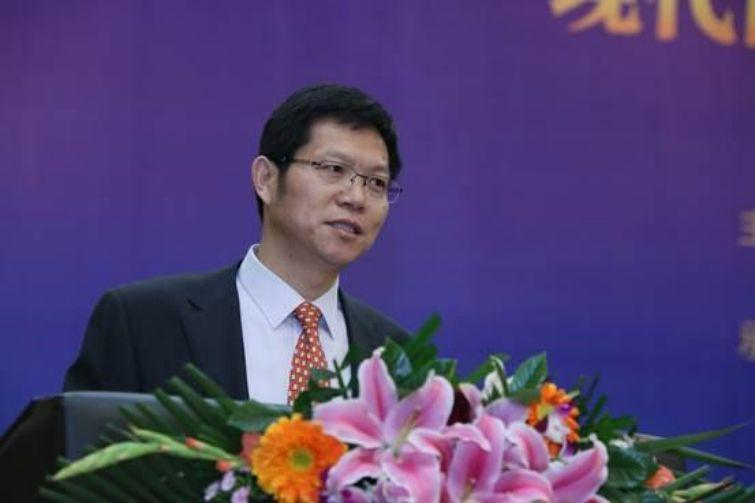
Figure: Director Shi Zhengwen's speech
Director Shi Zhengwen pointed out in his speech that our country has quietly transformed from market reform and economic reform as the core of the first thirty years of reform and opening up to a new stage and new normal of modern national governance as the core of political reform and progress of rule of law, and taxation, due to its unique mission and inherent qualities, determines that it will play the role of a breakthrough in such a great process. Taxation is a natural product of market economy, planned economy and natural economy are construction finance and household finance, taxation is naturally a public affair, a natural link between the government and the citizens, and a carrier for shaping the public spirit. Therefore, the new situation and new goals of promoting modern national governance require further changes and innovations in China's tax system, enhancement of direct taxes, more embedded personal and family factors in the tax system, and future tax reforms have gone beyond taxation itself, thus requiring tax-related professional services to face a series of innovations in terms of concepts, business and practice methods. China's tax-related professional service personnel will also face a new transformation, i.e., from tax experts to tax law experts, in order to better take up the mission of managing the country's finances, managing the people's finances, promoting social fairness and justice, and promoting the prosperity of the rule of law.
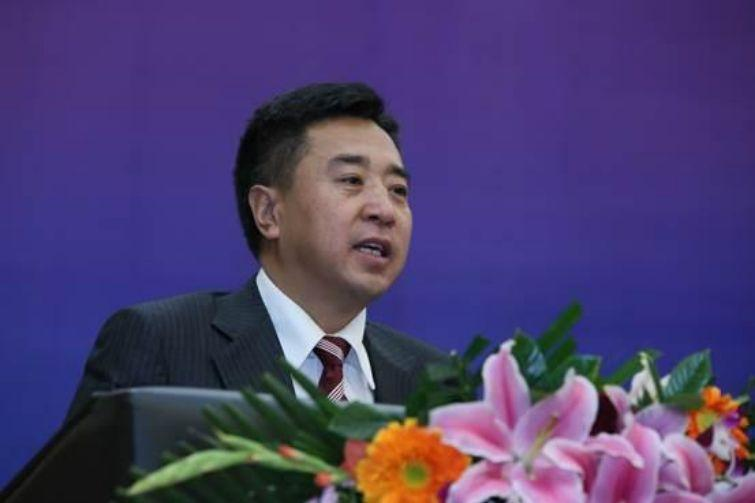
Figure: Gao Zicheng, President of the speech
Gao Zicheng, president of the speech that the Beijing lawyer profession is a developing profession, in the Ministry of Justice, the National Lawyers Association, the Beijing Division of the Bureau of Justice under the correct leadership of the many achievements, the process of serving the economic development of efforts to become the backbone of the rule of law, tax policy is the lever of economic development, tax governance needs to be modernized, the rule of law, to safeguard the legitimate rights and interests of taxpayers, to establish taxpayers' awareness, and to service the economic and social development, Beijing lawyers, tax lawyers, as well as the Beijing Law Society will strive to play a role. This forum provides a platform for the development and exchange of tax lawyers, enlightens wisdom, disseminates experience, and promotes new growth of lawyers' business, while advancing the tax system to be more scientific, promoting the rule of law in taxation, implementing the spirit of the 18th National Congress, and realizing the country's long-term stability.
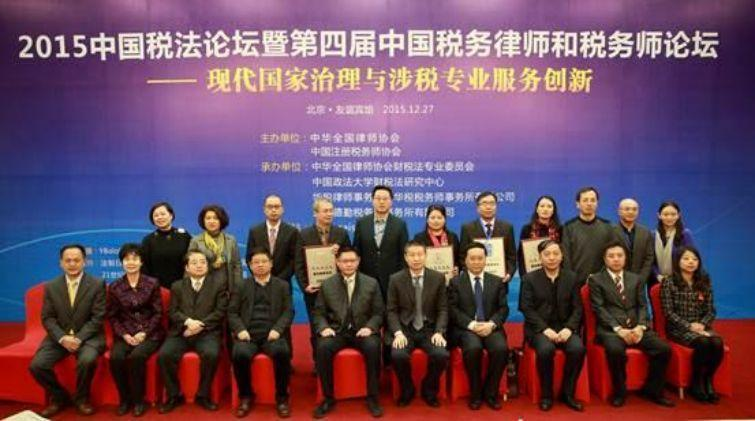
Picture: President Li Linjun awarding the license for Huatax 5A
At the end of the opening ceremony of the forum, according to the agenda of the meeting, under the auspices of Ms. Zhang Yan, the Hunan branch of Huatax, a 5A tax firm awarding ceremony was held, in which Mr. Li Linjun, the vice president of China Association of Registered Tax Accountants, on behalf of CTRA, awarded the license to Huatax Taxation Firm and its five branches for the newly recognized 5A tax firms, Dr. Liu Tianyong, the director of Hwuason Law Firm, and Ms. Bai Yunyan, the chairwoman of Huatax Law Firm Co. Ltd. and Mr. Ge Hailin, Ms. Bai Yunyan, Ms. Sun Ping and Mr. Zhang Feng of Guangdong Huatax, Chongqing Huatax, Sichuan Huatax and Shaanxi Huatax, respectively, represented the headquarters of Huatax Taxation Firm and the subordinate branches to accept the award on the stage one by one.
This year's forum included four topics, namely: (1) Modern National Governance and Tax Reform and Legislation; (2) Revision of Tax Administration Law and Innovation of Tax-related Professional Services; (3) New Trends and Case Analysis of Tax-related Services; and (4) "One Belt and One Road" Strategy and Innovation of International Tax-related Professional Services.
The first session, titled "Modern National Governance and Tax Reform and Legislation", was hosted by Mr. Zhao Zenghai, Vice President of Beijing Lawyers Association. President Gao Peiyong of the Institute of Financial and Economic Strategies, member of the Chinese Academy of Social Sciences, Li Linjun, vice president and secretary-general of the China Association of Registered Taxation Technicians, and Prof. Liu Jianwen of Peking University Law School, president of the China Association of Taxation Law, delivered their keynote speeches one after another.
President Gao Peiyong's keynote speech was titled "Modern State Governance and the '13th Five-Year' Tax Reform", and he firstly summarized the current round of tax reform, introduced the progress of the "Six Taxes and One Law" over the past two years, and concluded that the current round of tax reform has made a lot of progress. He first summarized the current round of tax reform, introduced the progress of the "Six Taxes and One Law" over the past two years, and believed that the current round of tax reform is "very different from the past" in terms of objectives and routes of advancement. In terms of objectives, it has changed from "adapting to the market economy" to "matching national governance", and from "establishing a basic framework for the tax system compatible with the socialist market economic system" to "establishing a tax system compatible with the national governance system". From "establishing a basic framework of tax system compatible with the socialist market economic system" to "establishing a modern tax system that matches the modernization of the national governance system and governance capacity"; in terms of the line of advancement, it has been strengthened that taxation is the foundation and important pillar of national governance. The main thread of the current round of tax reform can be summarized as "this eliminates and this reduces", reducing the proportion of indirect taxes through the "Camp Reform", etc., and legislating reforms of personal income tax, real estate tax, and inheritance and gift tax, so as to increase the proportion of direct taxes. He also analyzed in detail the "blind spot of understanding", "conceptual misunderstanding", "tax inertia", "taxation pattern", "current taxation pattern", and "current situation" faced in the process of tax reform. "It is believed that the point of view, difficulty and focus of the current tax reform is the "direct tax on natural persons", and that by 2020, the "comprehensive establishment of a modern financial and tax system" will be a major challenge. By 2020, "comprehensively establishing a modern financial and taxation system" will be a "war of attrition".
Vice President Li Linjun, under the title of "Modernization of National Governance and Innovation of Tax-Related Professional Services", introduced three aspects: firstly, the role of tax-related professional service social organizations is irreplaceable; secondly, the innovation of tax-related professional service social organizations cannot be neglected; thirdly, the management of tax-related professional service social organizations is indispensable. In his opinion, according to the relevant national policy documents, tax-related professional services have the roles of optimizing tax services, improving the efficiency of collection and management, and strengthening social supervision in three major aspects. Our country's tax law is too complicated, with more than two hundred fiscal and tax documents every year, which is very complicated, and the taxpayers are not clear about it and need professional help. At the same time, tax-related professional organizations should carry out service innovation, service platforms should go up, service targets should be precise, and service products should be innovative, and he introduced the relevant work currently carried out by China Association of Registered Taxation Technicians. In terms of management of tax-related professional service organizations, he combined with a recent survey that strengthening management would reduce the risk of taxpayers, and he believed that Japan, South Korea, Germany and the United States have experience in this area, which is worth learning from.
Professor Liu Jianwen's speech was titled "How to 'Implement the Principle of Taxation Statute'". He first analyzed what is the principle of taxation statute? What is the essence of the statutory principle of taxation? He believes that the original meaning of the principle of tax statute is to say that taxing people has to be agreed by people, and it depends on whether the modern financial system and the construction of the modern state are putting the people's will in the first place, emphasizing that the government's rights are granted by the people, so the connotation of the rule of law lies in the participation of the citizens, and changing the past unilateral government-led, emphasizing the democratic nature. Further, combined with the Legislative Law and other legal provisions, he pointed out that the principle of statutory taxation can be analyzed into three requirements: the elements are legal, the elements are determined, and the tax collection procedures are legal. Fundamentally, the implementation of the principle of statutory taxation means that the tax should return to its proper position as a public property, and then the fiscal and taxation power should be incorporated into the framework of the rule of law. In the specific implementation of the principle of tax law, the path should be from the law to the rule of law, from the form to the substance, from the tax to the use of tax, and ultimately to achieve the grand goal of the rule of law in finance and taxation.
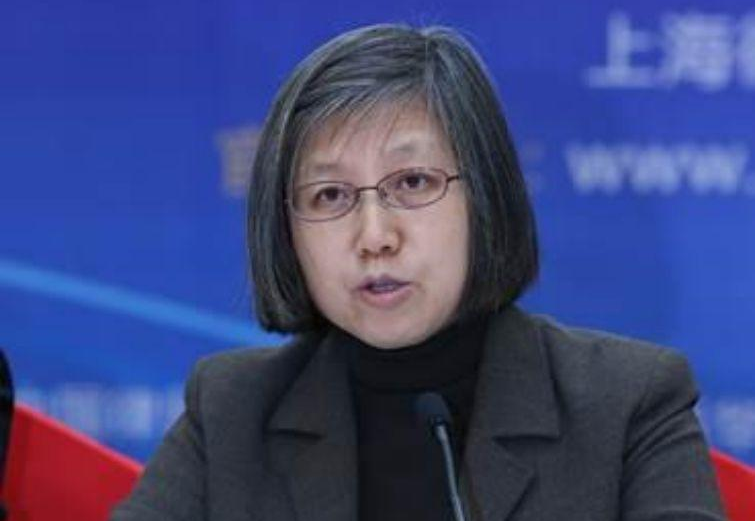
Picture: Prof. Liu Yi's Commentary Speech
After the keynote speeches, Prof. Liu Yi, Director of the Department of Finance, School of Economics, Peking University, Prof. Feng Xiubin, Doctoral Director of the Department of Economics, National School of Administration, and Prof. Deng Yanfang, General Manager of Zhonglian Taxation Firm Ltd. made comments.
The second session, titled "Revision of Tax Administration Law and Innovation of Tax-related Professional Services", was hosted by Li Jiongmei, Chairman of Golden Tax Bridge Taxation Firm Co. Mr. Li Wanfu, Director of Taxation Research Institute of the State Administration of Taxation, Mr. Zhang Xuerui, Deputy Director General of the Department of Policies and Regulations of the State Administration of Taxation, Ms. Jiang Ying, Partner-in-Charge of Taxation Practice of Deloitte Greater China, Mr. Wang Dongsheng, President of Zhongtax.com Taxation Firm, and Mr. Ge Hailin, Managing Director of Guangdong Huajian Yuexin Taxation Firm Ltd. gave their keynote speeches.
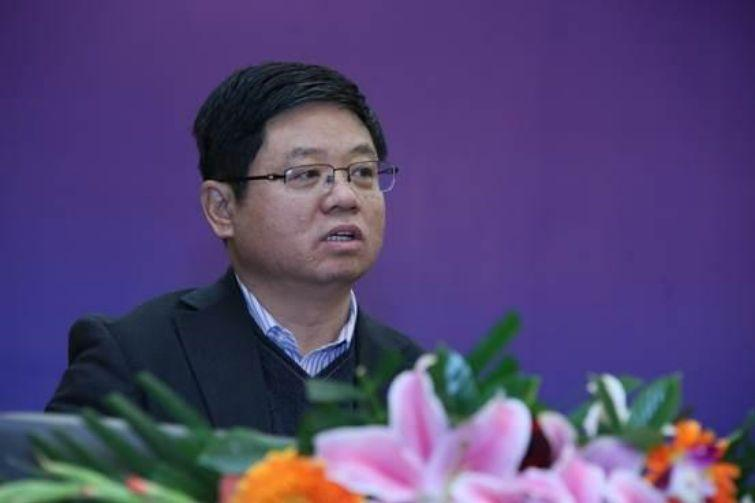
Picture: Speech by Mr. Li Wanfu, Director of the Institute
With the title of "Cracking the Difficulties of Revision of the Tax Administration Law", Mr. Li Wanfu, Director of the Institute, combined his own participation in the revision of the Tax Administration Law and his many years of experience in tax collection and administration, and focused on the basic conceptual issues of the revision process of the Tax Administration Law. He proposed that, firstly, it is necessary to emphasize the cooperation between power and right. The existing tax administration law has the problems of uncoordinated allocation of public and private rights, weak taxpayers' rights and relatively strong administrative power of tax authorities, and a number of major systems for the protection of taxpayers' rights and interests have been absorbed into the newly revised tax administration law, and at the same time, we should pay attention to the effective standardization and constraints on the existing administrative power of tax administration, especially the procedural control of the major administrative power, including the power of tax inspection, audit power, major administrative power, and the power of tax administration. At the same time, we should pay attention to the effective regulation and restraint of the existing administrative powers of taxation, especially the procedural control of the major administrative powers, including the powers of tax inspection, audit, and trial of major cases. Secondly, it pays more attention to the summarization of our tax administration practice. In the more than 10 years since the promulgation and implementation of the Tax Administration Law, all sectors of the society have carried out extensive exploration and practice on the issue of tax administration and reached many important consensus, including the professional management of our tax sources and assessment mechanism, which should be fully reflected in the newly revised Tax Administration Law, and at the same time, we have fully borrowed from the international beneficial practices in the area of tax administration. Thirdly, we should focus on strengthening the role of escorting the tax reform. The lack of timely standardization and establishment of the collection and management system has affected the process of reforming the individual income tax, real estate tax and other tax systems, and the reform of the six major taxes needs the favorable support of the collection and management law, which needs to be studied in the next step.
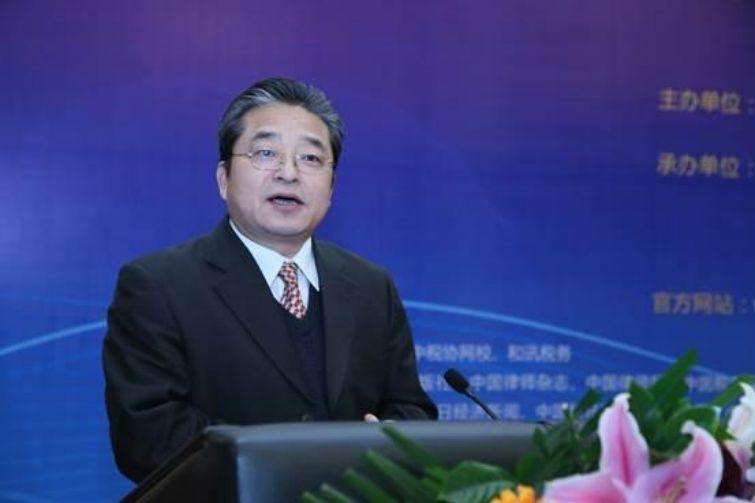
Picture: Speech by Zhang Xuerui, Deputy Director of the Department of Taxation
Zhang Xuerui, Deputy Director General of the Department of Taxation, spoke on the topic of "Insisting on Innovation and Properly Resolving Disputes to Promote the Rule of Law in Taxation", and firstly summarized the new features and trends of review and litigation cases in recent years: firstly, the total number of cases is small, but the growth rate is rapid. Secondly, the number of cases caused by information disclosure has increased significantly; thirdly, the cases are increasingly sensitive and complicated; fourthly, more attention is paid to the policies; fifthly, the cases are centralized to the General Administration of Taxation and Provincial Bureaus; and sixthly, more cases are settled through mediation. Secondly, he analyzed the new situation and requirements of tax dispute resolution, focusing on solving the problems of "faith, willingness and ability", and giving full play to the important role of reconsideration and litigation in "advancing development, deepening reform, resolving contradictions, and social stability". At the same time, he also combined with the Fifth Plenary Session of the 18th Central Committee of the Communist Party of China (CPC) "five concepts", that the proper resolution of disputes also requires innovation: First, institutional innovation, play the role of the main channel of tax administrative reconsideration to resolve contradictions, and the revision of the law on the administration of levy to solve the problem of the "two front". Second, institutional innovation, take the road of specialization, drawing on foreign experience, the establishment of a special office, a new type of tax administrative reconsideration committee, the external need to enhance the credibility of the internal intention to implement a new way to settle the case. Third, mechanism innovation, in the problem-solving mechanism, departmental coordination mechanism, review and litigation convergence mechanism to achieve a breakthrough.

Picture: Ms. Jiang Ying's speech
Ms. Jiang Ying spoke on the topic of "Innovation of Tax-Related Services in the Process of Rule of Law in Taxation". By analyzing the needs and challenges of rule of law in taxation and its impact on the tax service industry, she pointed out that tax services need to realize the innovative development of integration, teamwork and informationization. Mr. Wang Dongsheng, president of the company, spoke on the topic of "'Internet+' and Tax-Related Professional Service Innovation", describing how to realize tax-related service innovation under the background of "Internet+" from three aspects: the characteristics of the Internet era, the opportunities and challenges of the Internet era, and how to seize the opportunities and overcome the challenges. +" background to realize the innovation of tax-related professional services. General Manager Ge Hailin spoke on the topic of "Reorganization and Business Cooperation of Tax-Related Professional Service Institutions" and analyzed the new mode of sharing platform and common development among tax lawyers, CPAs and tax accountants under the new situation by combining with the background of the establishment of the six 5A tax firms of Huazhan Tax.
After the keynote speeches, Prof. Zhou Xuzhong, Secretary General of China Institute of Taxation Law and Law School of Capital University of Economics and Business, Mr. Li Jiyou, Vice President of Beijing Registered Taxation Technicians Association, and Mr. Wu Liguang, Director of Dahua Jiouyi (Beijing) Huarui Taxation Firm, made comments.
The third session, titled "New Trend of Tax-related Services and Case Analysis", was hosted by Mr. Wang Zhaohui, Director of Tax Law Committee of Beijing Lawyers Association. Prof. Shi Zhengwen, Vice Chairman of China Institute of Tax Law and Professor of Civil, Commercial and Economic Law School of China University of Political Science and Law, Yang Xiaoqiang, Professor of Law School of Sun Yat-sen University, Wang Jiaben, Deputy Director of Professional Committee of Tax Law of National Lawyers' Association, Associate Professor of State Taxation Cadre Training Institute, Mr. Zhao Guoqing, Mr. Wei Bin, Managing Partner of Hwuason Law Firm, Mr. Wei Zhibiao, lawyer of Huazhong Taxation Law Firm, made a keynote speech one after another.
Prof. Shi Zhengwen analyzed the legal issues in the handling of a tax-related equity transfer case under the title of "In-depth Analysis of a Tax-Related Equity Transfer Case in Guangdong". The background of the case is: two natural person shareholders of a company transferred 100% of their equity to a third party (natural person), and both parties agreed that 80% of the individual income tax to be borne by the transferor in the transaction would be borne by the transferee and 20% by the transferor. The transferee paid the price and registered the change of the enterprise's legal personality, but the transferee did not pay the tax according to the agreement between the two parties, so the tax authorities levied the tax on the transferee, and the transferee reported that the tax officials were derelict in their duties. Prof. Shi specifically analyzed the substantive issues of the case, such as "whether the transferee should be deemed to have 'withheld the tax'" and "whether the period of recovery should be 3 years or 5 years? How to determine the deadline? Whether the deadline has been exceeded" and other procedural issues were explained in detail, and specific issues such as the applicability of judicial interpretation, the effect of civil agreement in tax law, and the definition of the recovery period were analyzed.
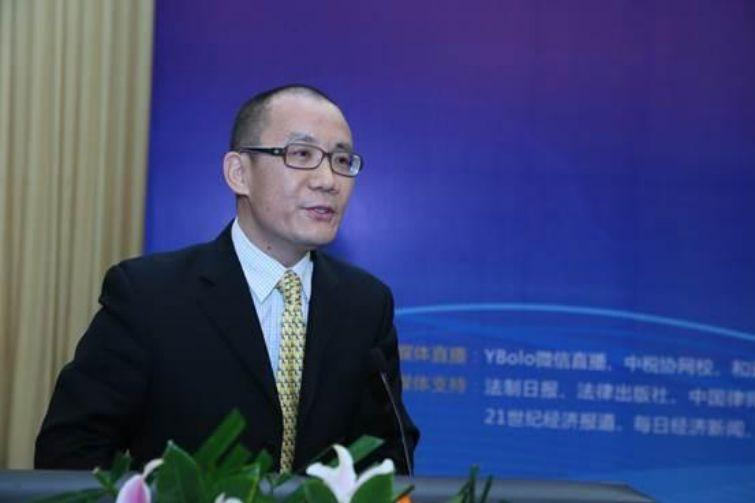
Picture: Prof. Yang Xiaoqiang's speech
With the topic of "Asset Valuation and Tax Approval", Prof. Yang Xiaoqiang combined his years of in-depth research to elaborate on the methods of asset valuation and the relevant theoretical issues of tax approval. He introduced that tax valuation is widely used in income tax, circulation tax, real estate tax and so on, which is reflected in tax approval. He analyzed in depth the provisions of tax policies in cases of deemed sales, anti-avoidance tax, related transactions, inability to provide tax information, original value of real estate, non-monetary personal income, and periodic quota, as well as the difficulties and legal defects of tax approval, and proposed that the power of tax approval belongs to the discretionary power, and the principle of proportionality should be adhered to. With regard to the use of tax valuation techniques, he combined the three methods of asset appraisal and suggested that the market method should be prioritized, the income method second, and the cost method third, in accordance with the principle of closest similarity and from near to far.
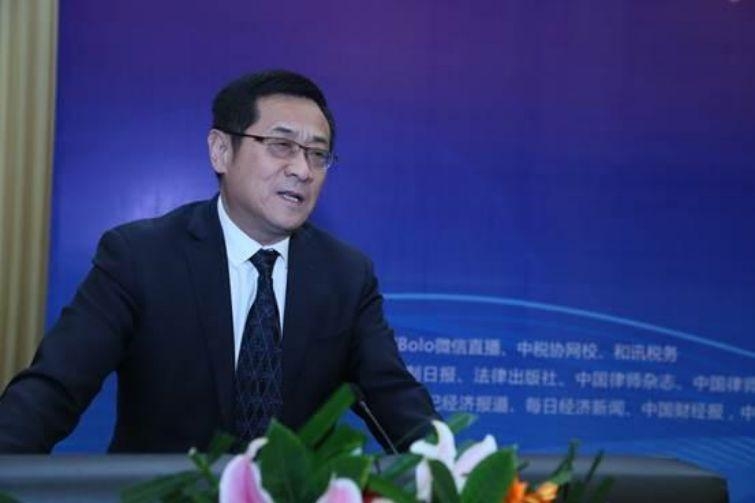
Picture: Speech by Mr. Wang Jiaben
Deputy Director Wang Jiaben analyzed the topic of "The Latest Difficult Cases of Enterprise Income Tax", and through specific cases, analyzed the questions of "Whether the land value-added tax not actually paid can be deducted before EIT?", "Whether the fraudulently issued VAT invoice obtained in good faith can be deducted before EIT? and "Whether the deduction before EIT is allowed for the false VAT invoices obtained in good faith?" He believed that the relevant tax law provisions are not perfect, and there are great differences in different regions, but they should be dealt with in accordance with the provisions of the Enterprise Income Tax Law and the relevant tax laws and regulations.
Mr. Zhao Guoqing, Associate Professor, analyzed the tax problems faced by China's financial investment business with the topic of "Difficulties in Income Tax of Financial Transactions", taking into account the experience of the United States' tax legislation in the field of finance as well as the lessons learned from the experience of Japan. Mr. Wei Bin spoke on the topic of "Exploring the Transformation and Upgrading of Traditional Services - Some Experiences in Developing Tax Services for Family Trusts", describing how tax services can be introduced into family trusts with the transformation of the family's view of wealth and the gradual emergence of family wealth issues. Mr. Wei Zhibiao, with the title of "Frontier of Tax Planning Business under the New Normal", introduced the legal risks faced by traditional "tax planning" under the new normal, and proposed that tax adjustments made by tax authorities should be in line with the three major principles of tax law, tax fairness, and tax neutrality, and that tax adjustments should be in line with the three major principles of tax law, tax fairness, and tax neutrality. He also introduced the latest development of tax planning business in China by combining with a recent case of a listed company.
After the keynote speeches, Teng Xiangzhi, Director of the Case Study Center of Finance and Taxation Law of the Chinese Academy of Social Sciences and Associate Researcher of the Institute of Financial and Economic Strategies, and Cao Mingxing, Vice Dean of the School of Taxation of the Central University of Finance and Economics, commented on the speeches.
The fourth session, titled "'Belt and Road' Strategy and Innovation of International Tax-Related Professional Services", was hosted by Mr. Cai Chang, Director of Department of Taxation and Financial Management, School of Taxation, Central University of Finance and Economics (CUFE). Mr. Wang Xiaoyue, Deputy Director General, Department of International Taxation, State Administration of Taxation, Mr. Mei Qicheng, Managing Partner, Tax Policy Services, PricewaterhouseCoopers, Ms. Song Jiao Lin, Partner, Shanghai Qinli Law Firm, and Mr. Zheng Fuquan, Managing Partner, Zhongrui Yuhua Taxation Firm, delivered their keynote speeches one after another.
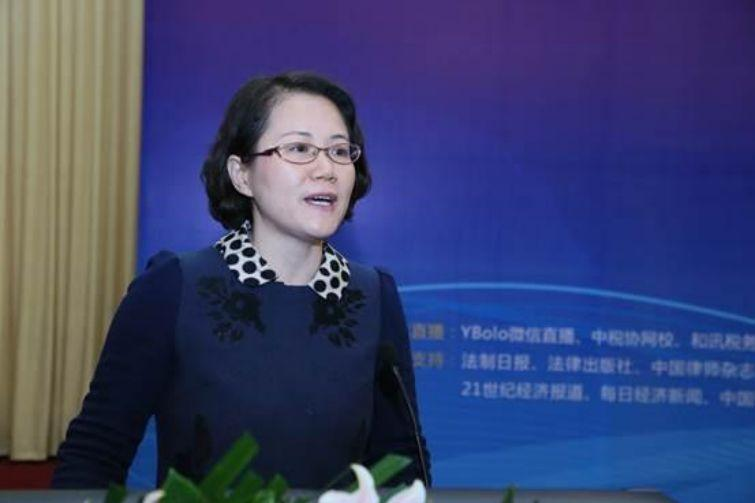
Picture: Deputy Director General Wang Xiaoyue's speech
Deputy Director Wang Xiaoyue spoke on the topic of "Tax Management and Tax Risk Prevention for Chinese Enterprises Going Global". Firstly, she introduced the current status of China's tax treaty legislation, including Hong Kong, Macao and Taiwan, there are currently a total of 104 tax treaties, which have played a positive role in the lowering of the tax rate and the sharing of dividends and bonuses, as well as the harmonization of relations between the two countries, These agreements or arrangements play a positive role in reducing tax rates, distributing dividends and bonuses, and coordinating the relationship between the two countries. She also introduced the tax risks faced by Chinese enterprises going abroad from the perspective of bilateral negotiation principles and international anti-avoidance of tax in the light of her experience in taxation work. She suggested that Chinese enterprises going abroad should pay special attention to five major tax risks: firstly, cross-border mergers and acquisitions; secondly, anti-avoidance investigations; thirdly, double taxation; fourthly, failure to enjoy the benefits of tax agreements; and fifthly, discriminatory treatment, and suggested that the enterprises should try their best to prevent the risks, improve tax compliance and understand the laws in order to avoid the risks better.

Picture: Mr. Mei Qicheng's speech
Mr. Mei Qicheng spoke on the topic of "'Belt and Road' Strategy - Tax Considerations under the 'New Normal'". Mr. Mei Qicheng spoke on the topic of "'Belt and Road' Strategy - Tax Consideration under the 'New Normal'", saying that under the "Belt and Road" strategy, enterprises should consider the cost and tax risk of overseas investment from the stages of strategic foresight, preparation, operation, and exit, etc., and analyzed the impact of the BPES on overseas investment as well as the strategies for enterprises to cope with the situation. Mr. Song Jiao Lin presented the topic of "Analysis of Tax-Related Equity Transfer Cases", focusing on the practical issues of tax-free reorganization of enterprises against the background of a case. Mr. Zheng Fuquan spoke on "International Tax Avoidance and Anti-Tax Avoidance Practices" and talked about the important role and challenges faced by tax service providers through the case analysis of tax avoidance arrangements and export tax rebates.
After the keynote speeches, Associate Professor Hu Tianlong from School of Law of Renmin University of China and Mr. Zhang Qiuyue, Director of Zhongzhao International Taxation Firm, made comments. After the four sessions, Liang Wenyong, Deputy Director of the Research and Evaluation Center for Legal Education of China University of Political Science and Law, summarized and commented on the forum as a whole.

Picture: Speech by Mr. Quan Fanglou, Vice Chairman of the Committee
The closing ceremony of this forum was held at 5:00 p.m. on the 27th, which was presided over by Dr. Liu Tianyong, Director of Hwuason Law Firm, Chairman of Huatax Taxation Firm Co., Ltd. and Deputy Director and Secretary General of Finance and Taxation Law Committee of the National Lawyers' Association, who, at the same time, on behalf of the organizer, thanked the experts and leaders for their attendance and wonderful speeches, and said that under the new situation of deepening the reform of the finance and taxation system, the tax-related service industry has a lot of He said that under the new situation of deepening the reform of the fiscal and tax system, the tax-related service industry has a lot of space for development, and the tax lawyers and tax accountants should promote the innovation of tax-related professional services, promote the organic combination of legal services and tax-related services, and better serve the modern national governance. Mr. Quan Fanglou, vice president of China Association of Registered Taxation Technicians, delivered a speech on behalf of the organizer. First of all, she congratulated the forum on its successful outcome and believed that this forum was the largest one since the Tax Law Forum was held in 2010, and that no matter the number and quality of the papers submitted, the extensiveness and representativeness of the delegates attending the meeting, and the brilliant speeches and comments of the experts, the forum had the highest level since the previous sessions, and was a grand event for the deep exchange between the academic circle and the practical circle, and achieved the best results in terms of the number and quality of the papers submitted. It is also a great event for the academic and practical circles to exchange ideas and achieve fruitful results. Finally, she expressed her gratitude to the National Lawyers Association Professional Committee of Finance and Taxation Law, the Research Center of Finance and Taxation Law of China University of Political Science and Law, and the four contractors, namely, Hwuason Law Firm, Huazhou Taxation Firm, and Deloitte & Touche Taxation Firm, for the fruitful work they have done! And I hope that the participating guests and leaders will continue to care about and support the rapid and healthy development of tax-related professional services, and I also hope that all the delegates will bring back the results of what they have learned and understood in this forum, and make great efforts to expand and strengthen the social professional services.
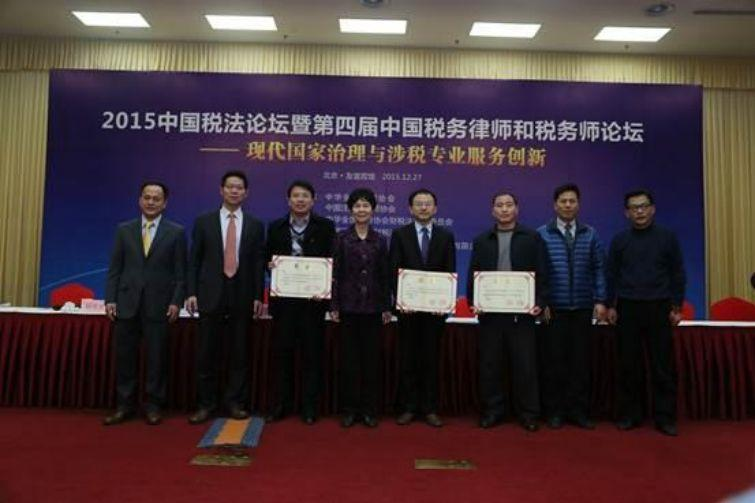
Picture: Awarding prizes to the authors of the winning papers
Prof. Shi Zhengwen of Tax Law Research Center of China University of Political Science and Law announced the list of award-winning theses of the forum, and 16 people, including Li Zhenyu, deputy director of State Taxation Bureau of Xinjiang Autonomous Region, were awarded the first prize, the second prize and the third prize, and the award-winning people went up to the stage to receive the awards and took a group photo to commemorate the occasion. "China Tax Law Forum and China Tax Lawyers and Tax Accountants Forum" has been successfully held for five sessions, this forum in terms of scale, level, organization, influence and other aspects of further enhancement, can be called China's fiscal and taxation forum milestone. With the theme of "Modern National Governance and Innovation of Tax-related Professional Services", the Forum closely integrates the five development concepts of the Third, Fourth and Fifth Plenary Sessions of the 18th CPC Central Committee on promoting the modernization of the national governance system and governance capacity, comprehensively advancing the rule of law, and adhering to the development of innovation, focusing on the reform and legislation of modern national governance and taxation system, revision of the tax administration law, and professional services related to taxation. Focusing on the four major topics of modern national governance and tax system reform and legislation, revision of the levy and administration law and innovation of tax-related professional services, new trends in tax-related services and case analysis, and the "Belt and Road" strategy and innovation of international tax-related professional services, the conference conducted extensive and in-depth discussions on the new situation, new concepts, new tasks, new business and new methods of China's tax law reform and the development of tax-related professional services, with far-reaching intentions. It embodies the organic combination of frontier, theory, practice, professionalism and openness. The convening of this forum will further promote China's tax reform and tax legislation, facilitate the construction and development of modern tax law theories, continuously lead and promote the development, business innovation and strategic cooperation of China's tax lawyers and tax attorneys, and better play the role of the reform of the fiscal and taxation system as a foundation, a pillar and a breakthrough in the modernization of the national governance and the rule of law.





